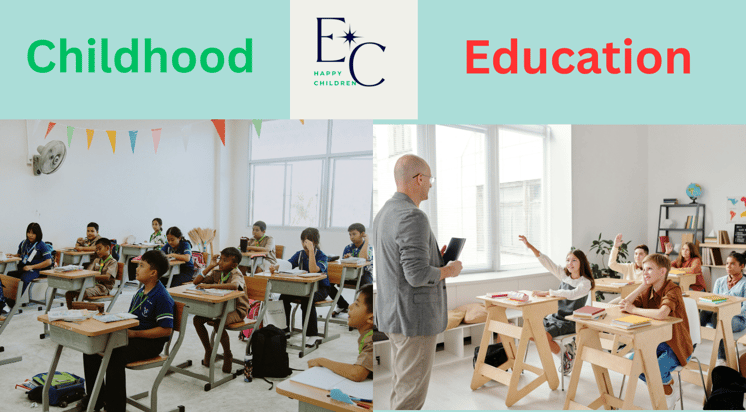What do you know about progressive education
The principles of progressive education, an innovative approach that prioritizes experiential learning, critical thinking,and social responsibility Influenced.. progressive education
9/23/20246 min read


An In-Depth Look at Progressive Education
Progressive education is an innovative teaching approach that prioritizes experiential learning, critical thinking, and social engagement. Emerging in the late 19th and early 20th centuries, this movement challenges conventional educational methods by focusing on students' interests and needs. It promotes active participation over passive information intake.
The principles of progressive education are significantly influenced by figures like John Dewey, who advocated for education to connect with students’ lives. Dewey asserted that real-world experiences enhance learning. This philosophy has shaped various teaching strategies that emphasize student involvement and collaborative learning.
A key aspect of progressive education is the belief that practical engagement leads to effective learning. Through hands-on activities, students can apply theoretical concepts, resulting in a deeper comprehension. For example, rather than simply memorizing historical dates, students might undertake projects that investigate the social dynamics of a particular time period.
In progressive classrooms, the teacher's role transforms from a mere provider of knowledge to a guide in the learning process. Educators encourage students to inquire and explore, fostering critical thinking and empowering them to take charge of their education.
Assessment methods in progressive education differ from traditional testing. Instead of relying solely on standardized exams, teachers often implement formative assessments that focus on individual growth. Tools like portfolios, projects, and self-evaluations offer a comprehensive view of a student’s learning journey.
Social justice and inclusivity are fundamental elements of progressive education. This model strives to create welcoming learning spaces that honor diverse backgrounds and viewpoints. By nurturing empathy and understanding, progressive education equips students to become active and responsible members of society.
Additionally, progressive education promotes interdisciplinary learning. Subjects are interconnected, allowing students to see the relevance of their studies in a broader context. This holistic approach enriches the learning experience and fosters critical thinking.
Modern progressive education also incorporates technology effectively. Digital tools enhance collaboration and provide students with access to extensive resources. Educators can use multimedia and online platforms to create engaging, relevant learning experiences tailored to today’s digital environment.
Community engagement is another crucial aspect of progressive education. Schools often partner with local organizations to offer students authentic learning opportunities. These collaborations enrich the curriculum and help students understand their roles within their communities.
Collaboration with families is vital in the progressive education model. Strong communication between teachers and parents builds a supportive learning atmosphere. Involving families in the educational process reinforces progressive values at home.
Despite its many benefits, progressive education faces some criticism. Detractors argue that it can lack structure and accountability. However, supporters maintain that a well-implemented progressive model can provide both rigor and flexibility, accommodating diverse learning styles.
Globally, progressive education has influenced various educational reforms. Countries such as Finland have integrated elements of this approach, emphasizing student well-being and personalized learning. These educational systems often prioritize teacher autonomy and professional growth, leading to increased student engagement and success.
Research indicates that progressive education can yield positive student outcomes. Studies reveal that learners in progressive environments often show enhanced motivation, creativity, and critical thinking abilities—skills essential for thriving in the 21st century.
As education evolves, the concepts of progressive education continue to hold significance. Educators are increasingly acknowledging the need for learning environments that emphasize student engagement and inquiry. This recognition reflects a broader understanding of the complexities involved in contemporary education.
In summary, progressive education offers a transformative approach to teaching and learning. By focusing on student experiences and promoting social responsibility, this educational philosophy prepares learners for an ever-changing world. Embracing progressive education can contribute to a more thoughtful, engaged, and informed society.
Students and Society relationship :
The connection between students and society is intricate, affecting both educational experiences and social structures. As emerging leaders, students play a crucial role in shaping societal values and norms, underscoring the importance of exploring how education impacts social development.
Education acts as a powerful driver for social change. Students frequently lead movements for equality, justice, and sustainability, actively participating in community service and advocacy. Their engagement fosters societal progress and encourages critical thinking, challenging existing norms.
In our rapidly evolving world, students are vital sources of innovation. Their unique viewpoints often result in transformative ideas and solutions. Collaborative learning environments enable students to tackle urgent societal challenges, from technological advancements to social entrepreneurship, highlighting the need for practical skills in education.
Relationships among peers greatly affect students’ social growth and academic achievement. Cooperative learning fosters essential skills such as teamwork and communication, which are crucial for overcoming societal challenges. These interactions also help students find their identity within the wider community.
Active involvement in the community is crucial for students. Engaging in volunteer work not only benefits society but also enriches students' personal development. Exposure to diverse groups promotes empathy and cultural understanding, equipping students with the necessary skills to contribute meaningfully.
The rise of technology has reshaped the interaction between students and society. Digital platforms allow students to connect globally, collaborating on social issues beyond their local environments. This online space empowers students to raise awareness, advocate for change, and gather support for various initiatives.
Despite their potential, students often confront numerous challenges in society. Financial difficulties, mental health concerns, and social disparities can impede their educational journeys. Addressing these issues is vital to creating a supportive environment that allows all students to flourish and make significant contributions.
Diversity within the student body enhances societal discussions. Exposure to a range of cultures, perspectives, and ideas promotes critical thinking and innovation. Educational institutions should prioritize inclusivity to ensure all voices are represented, leading to more effective solutions to social problems.
The bond between students and society extends beyond traditional education. Lifelong learning encourages civic engagement, urging individuals to remain active citizens. Students need to recognize their societal roles and the significance of continuous education in tackling ongoing social issues.
In summary, the relationship between students and society is crucial for fostering innovation and growth. By understanding this dynamic, educational institutions, policymakers, and communities can collaboratively create environments that empower students. A unified approach will equip students to lead society toward a more equitable and sustainable future.
Would you like to read more? Here is an amazing topic for you :
Environmental education
Introduction to Progressive Education in the USA
Progressive education in the United States is a reform movement focusing on experiential learning, critical thinking, and individual development. Originating in the late 19th and early 20th centuries, it arose in response to traditional teaching methods emphasizing rote memorization. Key proponents like John Dewey advocated for education that connects to students' lives, promoting active engagement. Today, progressive education is evolving to address modern challenges, prioritizing a love for learning, social responsibility, and emotional growth in students, making it a relevant and dynamic approach in contemporary education.
Core Principles of Progressive Education
The foundation of progressive education rests on the idea that learning should center around the student rather than the teacher. This approach encourages learners to pursue their interests through hands-on experiences that enhance critical thinking skills. Collaborative learning is essential, fostering teamwork and effective communication. Additionally, progressive education emphasizes community involvement and social justice, teaching students about their societal roles and responsibilities. By focusing on these core principles, educators aim to nurture lifelong learners capable of adapting to a rapidly changing world.
Historical Background and Development
The progressive education movement emerged in the early 20th century, driven by educators’ desire to reform outdated educational practices. Influenced by the industrial revolution and shifting societal needs, reformers like John Dewey and Maria Montessori promoted a curriculum that was engaging and relevant. Over the years, progressive education has inspired various models, such as Montessori and Waldorf schools. Despite facing criticism and challenges, this approach has evolved, incorporating technology and addressing issues like equity and inclusion, ensuring its relevance in today’s educational landscape.
Contemporary Implementation of Progressive Education
Currently, progressive education is implemented in various public and private schools across the USA. Innovative techniques such as project-based learning, where students tackle real-world issues, and inquiry-based learning, which sparks curiosity, are widely used. Many institutions adopt blended learning strategies, integrating technology to enhance student engagement and customization. These methods aim to equip students with essential skills like problem-solving, creativity, and adaptability, preparing them for the demands of the modern workforce and society.
The Educator's Role in Progressive Education
Teachers are crucial to the effectiveness of progressive education. In this model, educators serve as facilitators, guiding students rather than simply delivering information. This approach enables teachers to create responsive learning environments tailored to individual needs and interests. Ongoing professional development is vital, helping educators master progressive teaching strategies. By fostering a collaborative and evolving culture, teachers can empower students to take charge of their educational journeys, resulting in richer and more impactful learning experiences.
Challenges Facing Progressive Education
Progressive education, while beneficial, faces several obstacles. Critics argue it may lack the structure needed for students who perform better in traditional settings. Standardized testing and accountability measures can also limit the creativity and flexibility that progressive education seeks to promote. Furthermore, disparities in funding can hinder schools from effectively implementing innovative practices. Addressing these challenges is essential for advocates to ensure that progressive education continues to thrive across diverse educational environments.
The Future of Progressive Education
The future of progressive education in the USA looks promising yet complex. As educational frameworks adapt to societal changes, there is an increasing recognition of the importance of holistic approaches that balance emotional, social, and academic development. The integration of technology and personalized learning experiences is expected to shape progressive educational practices moving forward. By encouraging collaboration among educators, policymakers, and communities, the progressive education movement can tackle emerging challenges, ensuring its relevance and effectiveness for future generations.
Foster positive learning environment for young minds with perfect advices
© 2024. All rights reserved.
